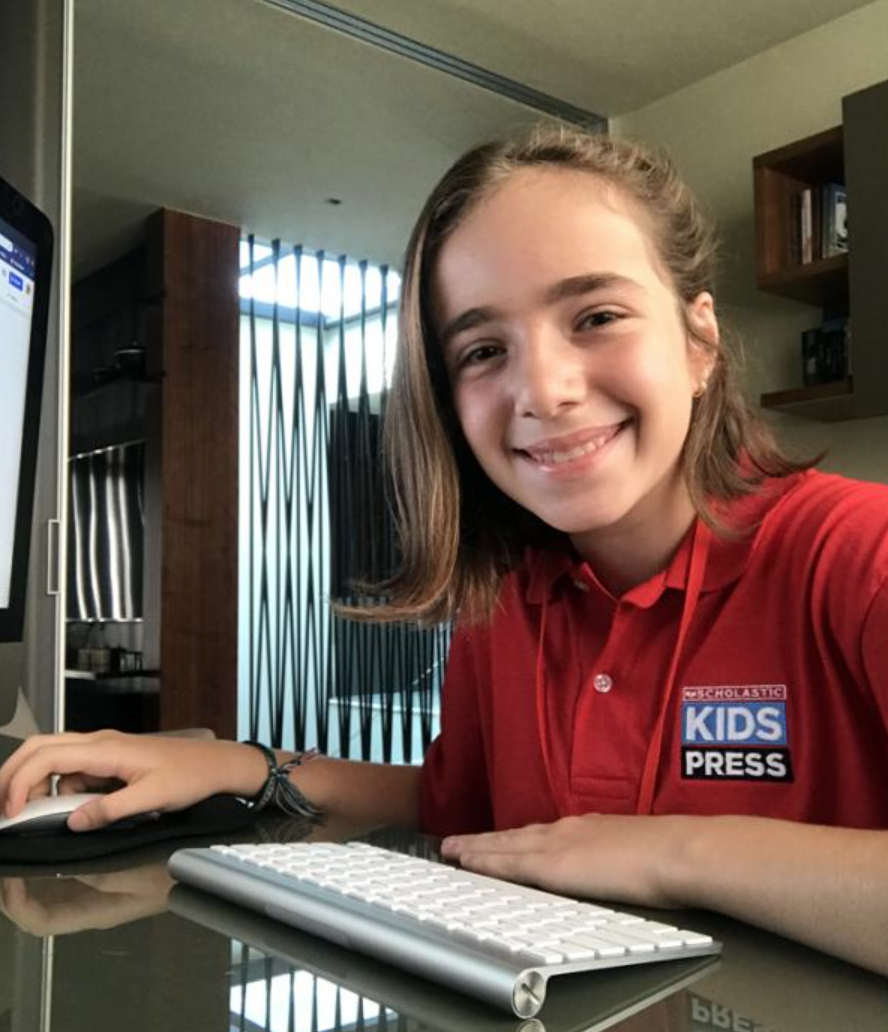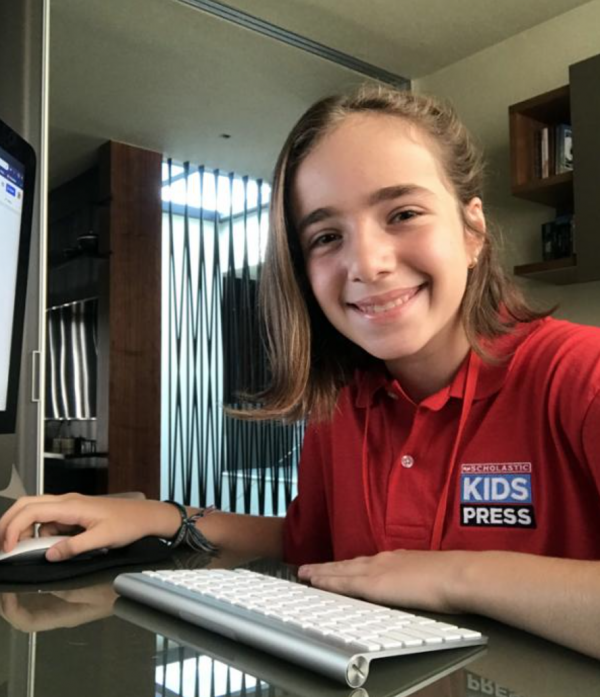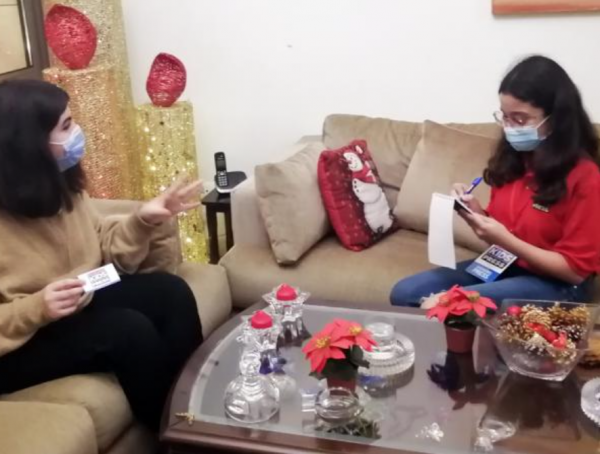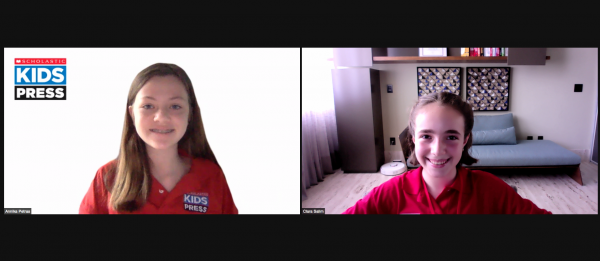KID REPORTERS’ NOTEBOOK
Coping With the Pandemic Around the World


Kid Reporter Clara Lopes Salim lives in Brazil, which has been hit particularly hard by the coronavirus.
As of February 3, more than 2.24 million people around the world have died from COVID-19, the contagious disease caused by the coronavirus. Where I live in Southern California, we are in our third “wave” of cases.
The distribution of vaccines is creating hope that we’ll be able to return to normal life soon. Still, in California, we continue to break records for most cases in a single day, even as new restrictions and lockdowns are imposed. I haven’t spent a day in a classroom since March 2020.
The pandemic is hard on all of us in the United States. But I wanted to find out what it was like in other places around the world. So I reached out to three Scholastic Kid Reporters who live in other countries: Dana Chaaban in Lebanon, Clara Lopes Salim in Brazil, and Leo Nyguen in Vietnam.
From these interviews, I learned that kids around the world are facing similar challenges and having experiences much like ours in the U.S. Some countries seem to have the pandemic handled pretty well because of tough restrictions and widespread testing and contact tracing, while others are experiencing similar surges of the virus. Below are the questions I posed to my fellow Kid Reporters in other parts of the world and their responses.
What is the current status of the COVID-19 pandemic in your area?
Dana (Lebanon): The COVID-19 virus has been spreading more and more every day. Unfortunately, people didn’t follow the necessary precautions during the Christmas holidays, and there are thousands of new cases every day.
Clara (Brazil): Yesterday there were [a lot] of deaths. We call it the second wave. The number of people who had the virus rose in July and August. A new wave of cases is starting here again.
Leo (Vietnam): We’ve been controlling the virus very well. The total number of infected people in Vietnam is below 2,000. However, some people still try to escape isolation. That can cause the virus to spread further, so we have to be careful.

Kid Reporter Dana Chaaban conducts an interview in Lebanon, where strict social distancing measures are in place.
What are the restrictions like in your area?
Dana (Lebanon): Lebanon has recently been in lockdown again. There is also a curfew, where everyone has to be home by 6:00 p.m.
Clara (Brazil): We just re-opened grocery stores, although you have to keep socially distant and wear a mask. In school, we have to eat and stay in our own classes all the time. We have to keep a distance from each other and always wear masks.
Leo (Vietnam): To make sure everyone wears a mask and protects themselves from the virus, the government has created a new law. You “must” wear a face mask when you’re outdoors, and check your temperature when you go to the supermarket, school, etc. After a temperature check, they’ll spray sanitizer on your hands, but everyone is still encouraged to wash their hands with soap and water.
How has school changed for you throughout the pandemic?
Dana (Lebanon): Before the latest lockdown, we would go to school only three times a week. The class was divided into two. The first group would attend school for three days, and the other group would attend on the remaining three days so that there wouldn’t be too many students in one class. Ever since we’ve been in lockdown, we’ve been attending school virtually.
Clara (Brazil): At the beginning, people were excited, like, “Vacation! Yay! Schools are closing!” And then everyone said, “I need to go back to school!” It was very hard to study doing distance learning at home. In October, schools started to open again, and, as I said, we couldn’t leave our classroom to have lunch. Everything was in our classrooms. We couldn’t go to the art classroom or the math classroom. All of the teachers came to us, which was very different. Just seeing everyone with masks was strange.
Leo (Vietnam): At the start of the pandemic, all schools in Vietnam were closed, and we started learning online after two weeks. At first, we used Zoom. But sometimes we couldn’t connect to Zoom, so my school decided to use Microsoft Teams.

Annika interviews Clara, who lives in Brazil, via video.
How do you get information on what’s happening around the world with the pandemic?
Dana (Lebanon): I mostly learn more about the pandemic through the news and social media.
Clara (Brazil): I like watching the news with my dad at night. But I also do a lot of research about what’s happening.
Leo (Vietnam): I learn what’s happening with the pandemic in other countries by watching the news.
What have you learned about yourself during the pandemic? Or have you tried anything new?
Dana (Lebanon): During the pandemic, I’ve been practicing my hobby, which is drawing. I’ve also started to read more books than before, since I now have more free time.
Clara (Brazil): I try to play more with my sister. I’ve spent more time with my family and learned a lot about them. I’ve learned more about my friends, too, just talking with them on the computer. I started to draw a lot and color a lot. I like to do that to calm myself. I started journaling, and every day I just write about my day, so that has been very good.
Leo (Vietnam): I’ve learned that I don’t like to do gym class remotely.
